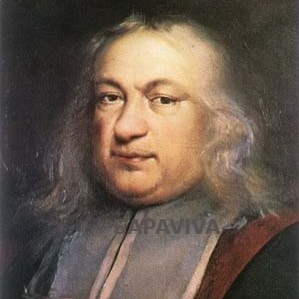(August 17, 1601 – January 12, 1665)
Like Qin Jiushao before him, Pierre de Fermat treated mathematics as a hobby. Like Gottfried Leibniz after him, he fared as both a lawyer and a math enthusiast. His inspirations could be traced back to the works of François Viète, Gerolamo Cardano and Diophantus of Alexandria. Like Blaise Pascal and Christiaan Huygens, he jotted randomly in lieu of publishing coherently. Notwithstanding, his ingenuity enabled him propound some of the most complex and difficult theorems ever encountered. His works on Adequality ushered-in the development of Infinitesimal Calculus. Isaac Newton admitted that he got Calculus ideas from Fermat’s methods of solving tangents. Together with Pascal, Fermat is acknowledged as founder of Theory of Probabilities. Although he is famous today for his Last Theorem, which he scribbled as a mere token on the margins of a book: Diophantus’ Arithmetica, my research-findings confirmed that he was a consummate mathematician. Apart from laying the foundations of Calculus and Theory of Probabilities, he helped develop Number Theory, Analytical Geometry, and Geometrical Optics. He was so adept as to enunciate the invalidity of one of René Descartes’ analyses. This instigated a squabble which prompted Descartes to utter disparaging words against Fermat and Pascal. Fermat ignored him; remained a pacesetter, and is widely considered among the world’s most brilliant mathematicians. Even Pascal admired his brilliance; and corresponded frequently with him. Fermat’s theorems were so abstruse and revolutionary that whoever proved any, (partially or fully), gained veneration. These included top-notchers like: Euler, Gauss, Cauchy, Lagrange and Dirichlet.
All rights reserved. © Valentine Oduenyi


A great math genius.
I liked your website
It’s good to read the views of other visitors. I’m eager to learn more.
Short and wonderful – that’s exactly how I love stuffs like these.
Great contents! I’ll bookmark this site.
Wow!
I am enjoying this awesome blog.
Like!! Thanks!!
% Top %
Great accomplishments !
I am so grateful for your blog post. Thanks again.
I’m amazed by his incredible theorems
A very good mixer
Fermat is still the best proposer of theorems. Has anybody done better?
The brain full of great theorems.
Decent points
Brave heart & Great mind
Math is a mind game and Fermat plays it well.
Profoundly gifted
Theorems from the master
Even his bones were built with numbers!
You got a nice blog.